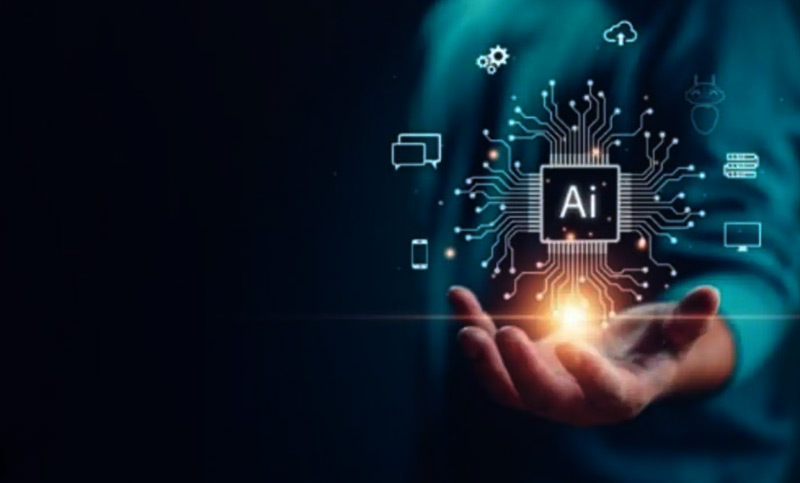Artificial Intelligence: The Influence on Academic Frontiers
September 27, 2024Artificial Intelligence (AI) is transforming academia by revolutionizing research, teaching, and learning. Its integration enables researchers to analyze vast data sets, generate new insights, and automate routine tasks, significantly improving the efficiency and quality of academic work. In education, AI offers immense potential for personalized learning and tailored feedback, empowering educators to create adaptive curricula that better meet individual student needs, thus enhancing engagement and performance.
AI is not only streamlining traditional processes but also opening doors to interdisciplinary collaboration and innovation. As academic institutions increasingly adopt AI-driven tools, the boundaries of knowledge and education are expanding, heralding a new era of growth and discovery. This technological revolution promises to enhance academic efficiency and creativity, but also raises critical questions about ethics, equity, and the future role of human educators.
AI's Revolutionary Role in Education
Artificial Intelligence (AI) is transforming the field of education by reshaping how students learn and teachers conduct their lessons. One of the most prominent changes has been the introduction of personalized learning experiences. AI-driven systems analyze students' unique learning patterns and provide tailored educational content. This allows students to work at their own pace and receive targeted feedback, enhancing overall academic performance. Adaptive learning platforms are an example of AI technology that caters to individual needs, creating a more efficient and effective learning process.
For teachers, AI has streamlined many routine tasks, including grading and administrative duties. Automating these responsibilities allows educators to focus more on lesson planning and interactive teaching. AI-powered intelligent tutoring systems also assist teachers by providing students with additional support outside of the classroom, helping clarify difficult concepts and reinforcing lessons.
AI has broadened access to education, especially for learners in remote or underserved regions. With virtual classrooms and AI-powered platforms, students worldwide can access high-quality educational resources. Chatbots further support students by offering real-time help with assignments and questions, regardless of geographical barriers.
Nevertheless, concerns surrounding data privacy and ethical considerations are paramount. There is also a fear that over-reliance on AI may affect the development of critical thinking and problem-solving skills. Therefore, while AI enhances the educational experience, it is crucial to strike a balance between the use of technology and the human touch in learning environments.
AI in Academic Research
AI is transforming academic research by enhancing data analysis and automating various research processes. Machine learning algorithms can sift through vast datasets at speeds and accuracies beyond human capabilities, identifying patterns and insights that might be overlooked. For instance, AI has been used in genomics to analyze large-scale data, leading to discoveries about genetic variations linked to diseases.
Furthermore, AI fosters interdisciplinary collaboration by enabling researchers from diverse fields to work together seamlessly. Tools like natural language processing facilitate the synthesis of research findings across disciplines. A study published in the Nature journal highlighted that AI-driven innovations have led to significant advancements in fields like material science and drug discovery, demonstrating AI's impact on research methodologies and outcomes.
AI in Personalized Learning
Personalized learning has gained significant traction through adaptive learning platforms powered by AI. These platforms assess individual student performance in real time, tailoring educational content to meet specific learning needs. According to a study from the Bill & Melinda Gates Foundation, personalized learning can improve student performance by up to 20%.
Intelligent tutoring systems exemplify AI's role in customization. They provide personalized feedback and instructional support, fostering deeper engagement and improving learning outcomes. Various platforms adapt in real time to students’ responses, enhancing their learning experience. Studies indicate that students using AI-enhanced systems demonstrate higher levels of motivation and retention, as these tools create a more engaging and responsive learning environment.
AI in Teaching and Assessment
The incorporation of AI into teaching and assessment is reshaping the educational environment. Automated grading systems utilize AI algorithms to evaluate student work, providing quick and consistent feedback. Research from the University of Illinois indicates that AI grading can achieve an accuracy rate of over 90% compared to human graders, ensuring that assessments are unbiased and standardized.
AI takes on administrative tasks, allowing teachers to concentrate on instructional quality and student interaction. AI systems can manage schedules, track attendance, and even analyze student performance data, leading to more informed instructional decisions. By streamlining these processes, AI reshapes the classroom experience, enabling educators to dedicate more time to developing meaningful connections with their students.
AI’s Role in Promoting Collaborative Learning
AI tools are instrumental in promoting collaborative learning among students and researchers. Platforms equipped with AI capabilities facilitate real-time communication and project management, allowing teams to work together effectively regardless of geographical barriers. Several tools utilize AI to enhance user experience and streamline collaboration.
Additionally, AI-enabled platforms that connect global academic communities encourage cross-institutional partnerships. For instance, research collaboration networks leverage AI to match researchers with similar interests, promoting innovative research initiatives and broadening the scope of learning experiences. Such collaborations can lead to groundbreaking research outcomes and enrich the academic environment.
Challenges and Ethical Implications of AI in Academia
While the benefits of AI in academia are substantial, significant challenges and ethical implications persist. Data privacy and security are paramount concerns, especially regarding the handling of sensitive student information. Institutions must navigate complex regulations, to ensure compliance and protect user data.
Algorithmic bias poses another critical issue, as flawed AI systems can perpetuate inequities in educational outcomes. A study from MIT found that facial recognition systems exhibited higher error rates for people of color, underscoring the need for fairness in AI applications. Additionally, ethical dilemmas arise surrounding the extent to which AI should replace human cognitive functions in academic settings, necessitating thoughtful discussions on the role of technology in education.
AI and Academic Integrity
AI can play a pivotal role in enhancing academic integrity by providing tools to prevent misconduct. For instance, plagiarism detection software powered by AI analyzes writing patterns and content similarities and numerous other tools employ sophisticated algorithms to ensure that original work is upheld.
However, the rise of AI-generated content complicates matters. As AI systems become adept at producing human-like text, educators face challenges in distinguishing authentic student work from machine-generated outputs. A report from the Stanford University’s Center for Research on Education Outcomes noted that while AI can enhance learning, it also poses risks regarding the authenticity of assessments. Balancing the benefits of AI in assessments with the need for authentic learning experiences remains a crucial task for academic institutions.
The Future of AI in Higher Education
The future of AI in higher education holds transformative potential for curriculum development and academic standards. AI is likely to influence the design of curricula, enabling a more dynamic and responsive educational framework that adapts to emerging knowledge and skills required in the workforce. According to the World Economic Forum, AI could lead to significant changes in job markets, necessitating new skills in areas like data analysis and AI ethics.
Moreover, AI may redefine academic policies, introducing new standards for assessment and accreditation. As AI continues to evolve, it will also reshape the roles of educators and students, with a greater emphasis on mentorship and critical thinking, preparing learners for a rapidly changing job market. Institutions that proactively integrate AI into their strategic plans are likely to lead in innovation and educational effectiveness.
Conclusion
As artificial intelligence becomes more integrated into the academic world, its ability to spark innovation and improve learning is clear. The technology provides unique opportunities to simplify tasks, enhance teaching methods, and support important research advancements. Yet, its rapid adoption also introduces new considerations, from ethical concerns to the evolving role of educators and researchers. To fully realize the benefits of AI, academic institutions must embrace a forward-thinking approach, balancing technological advancements with a commitment to fostering critical thinking, creativity, and equity. The future of education will be shaped not only by how AI is utilized, but by how thoughtfully it is integrated into the academic experience.




